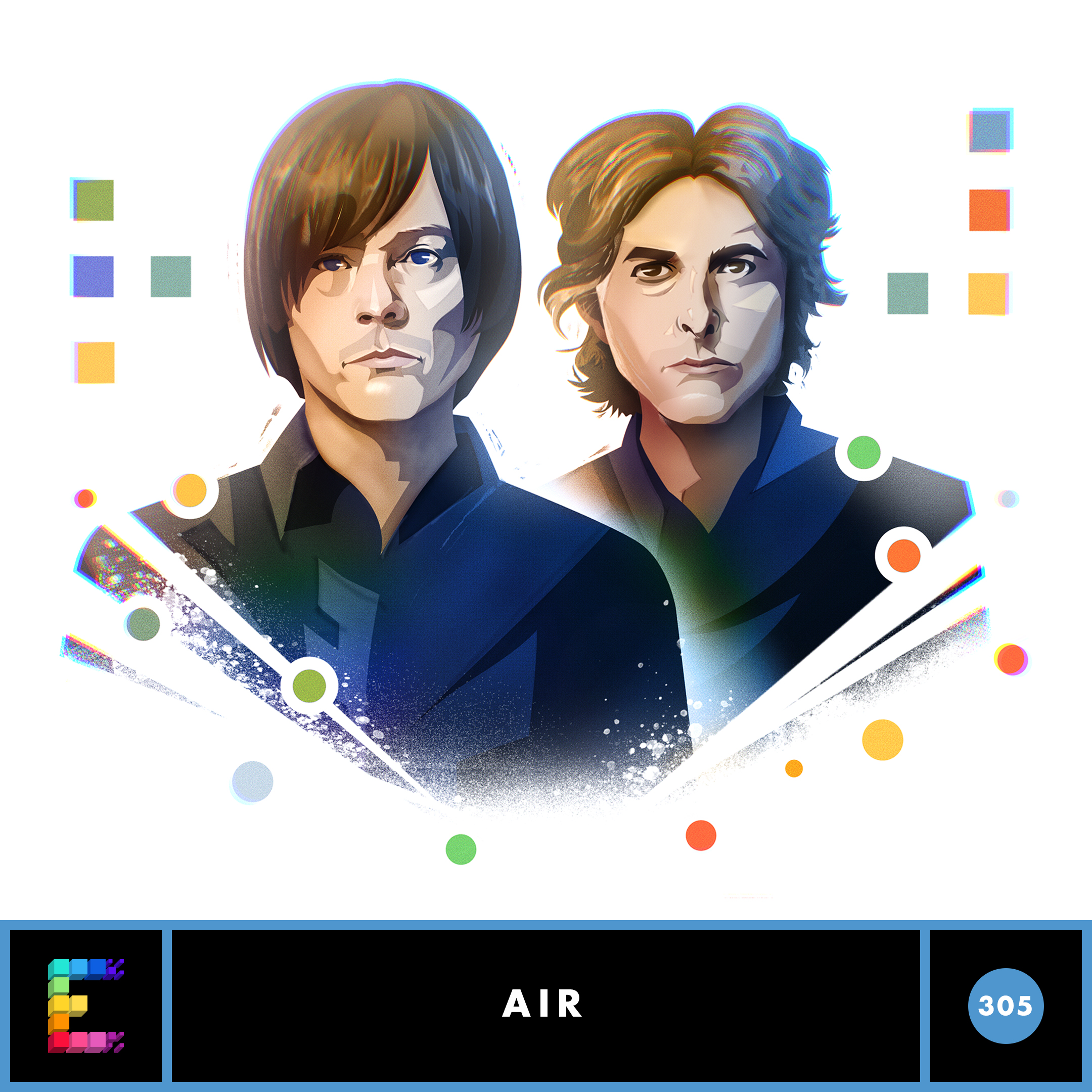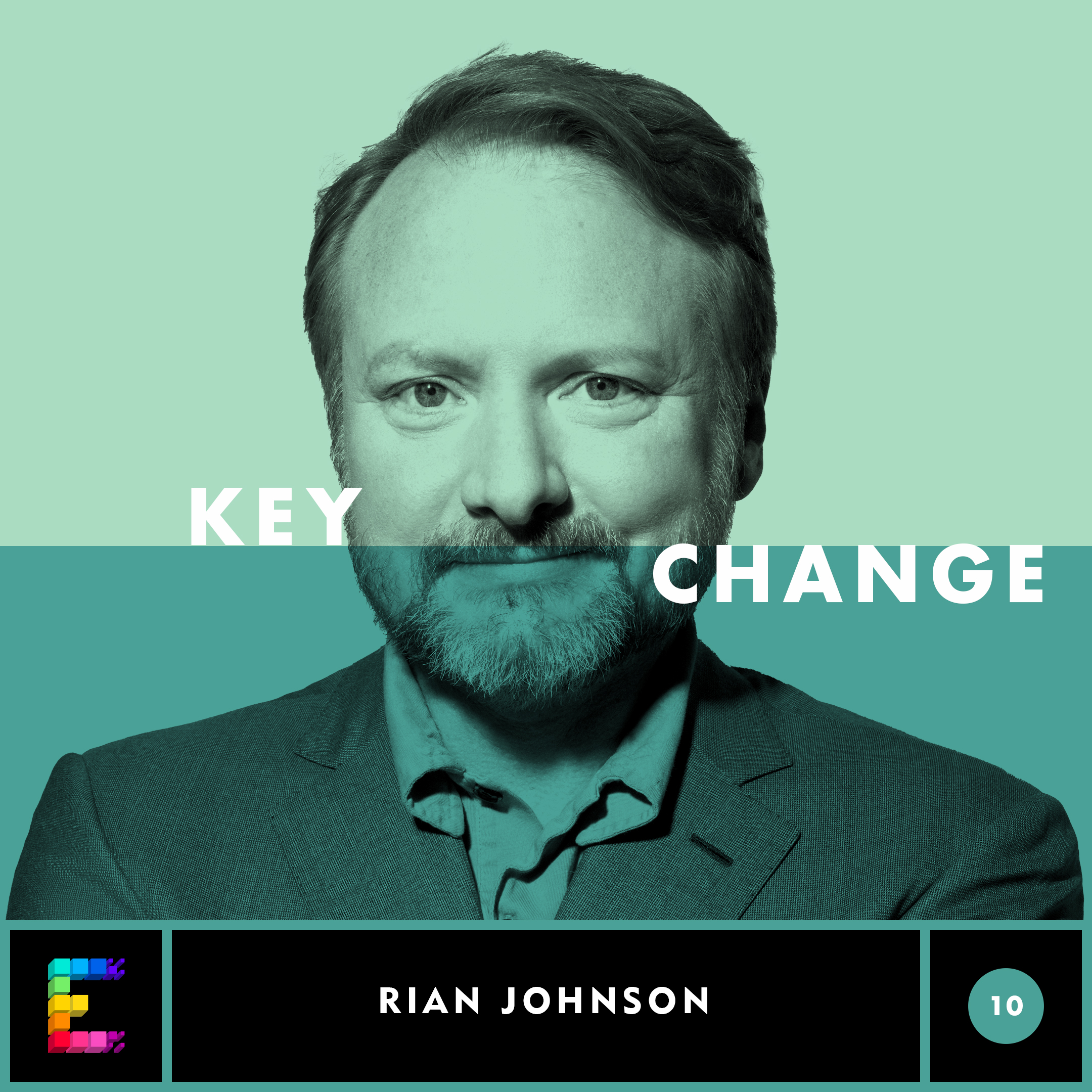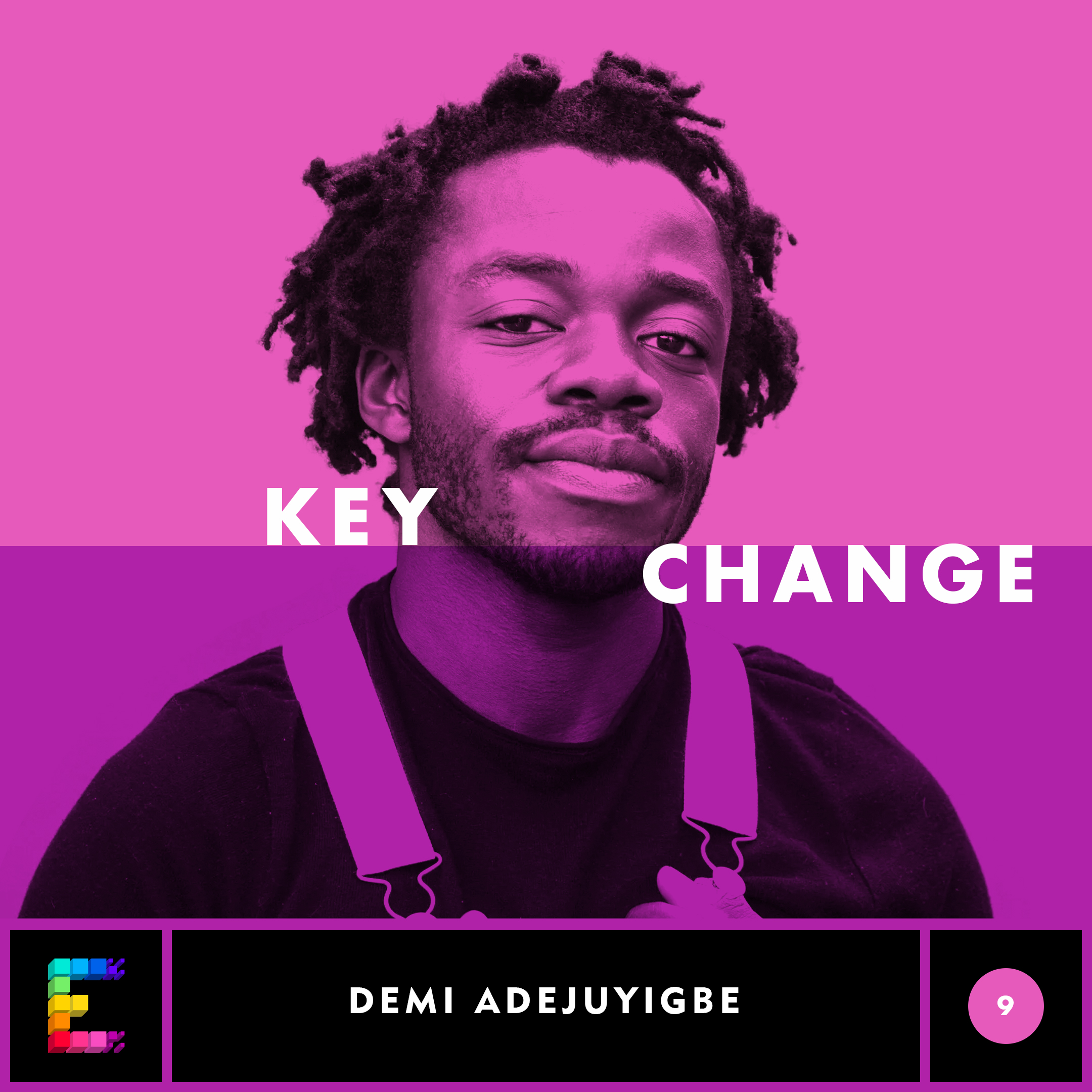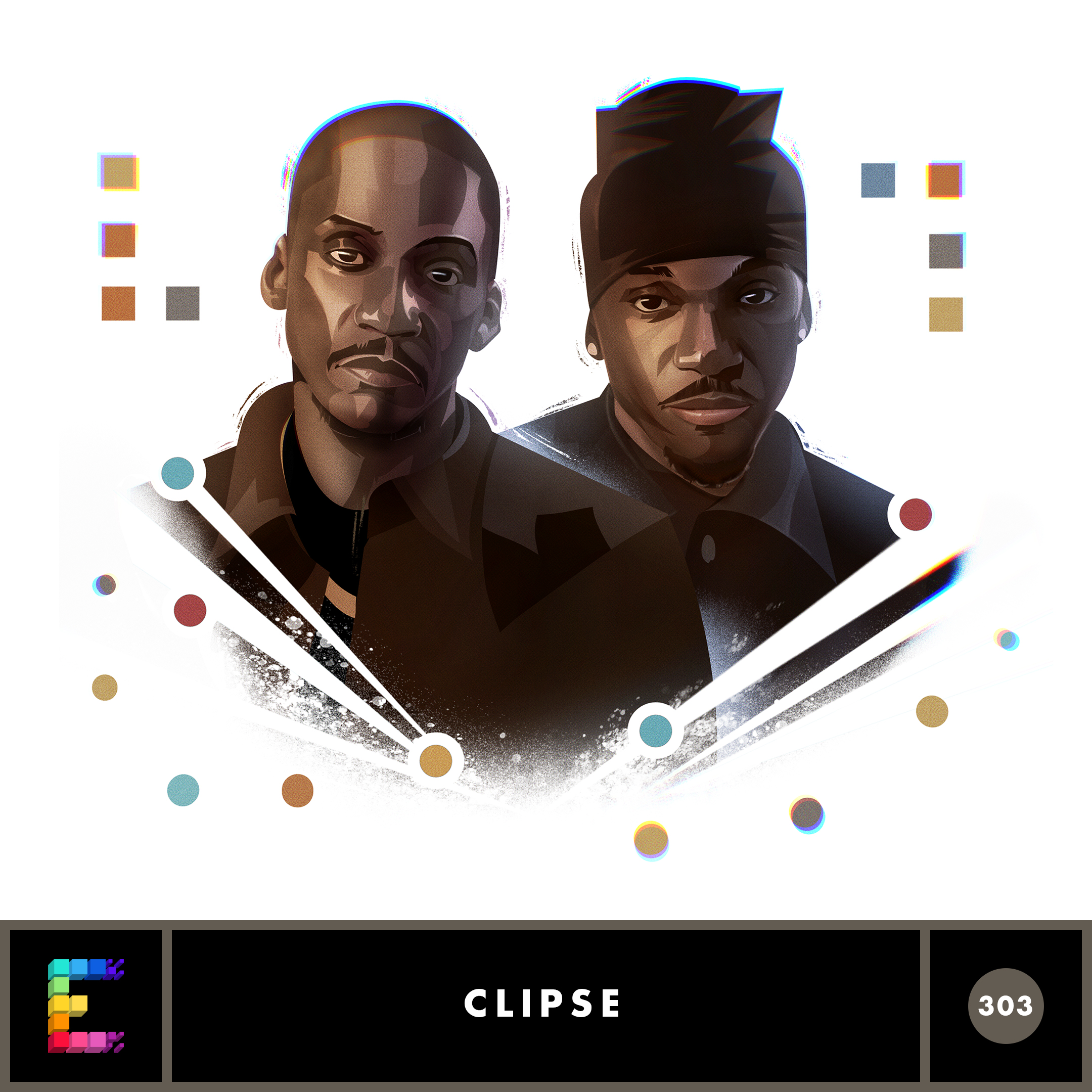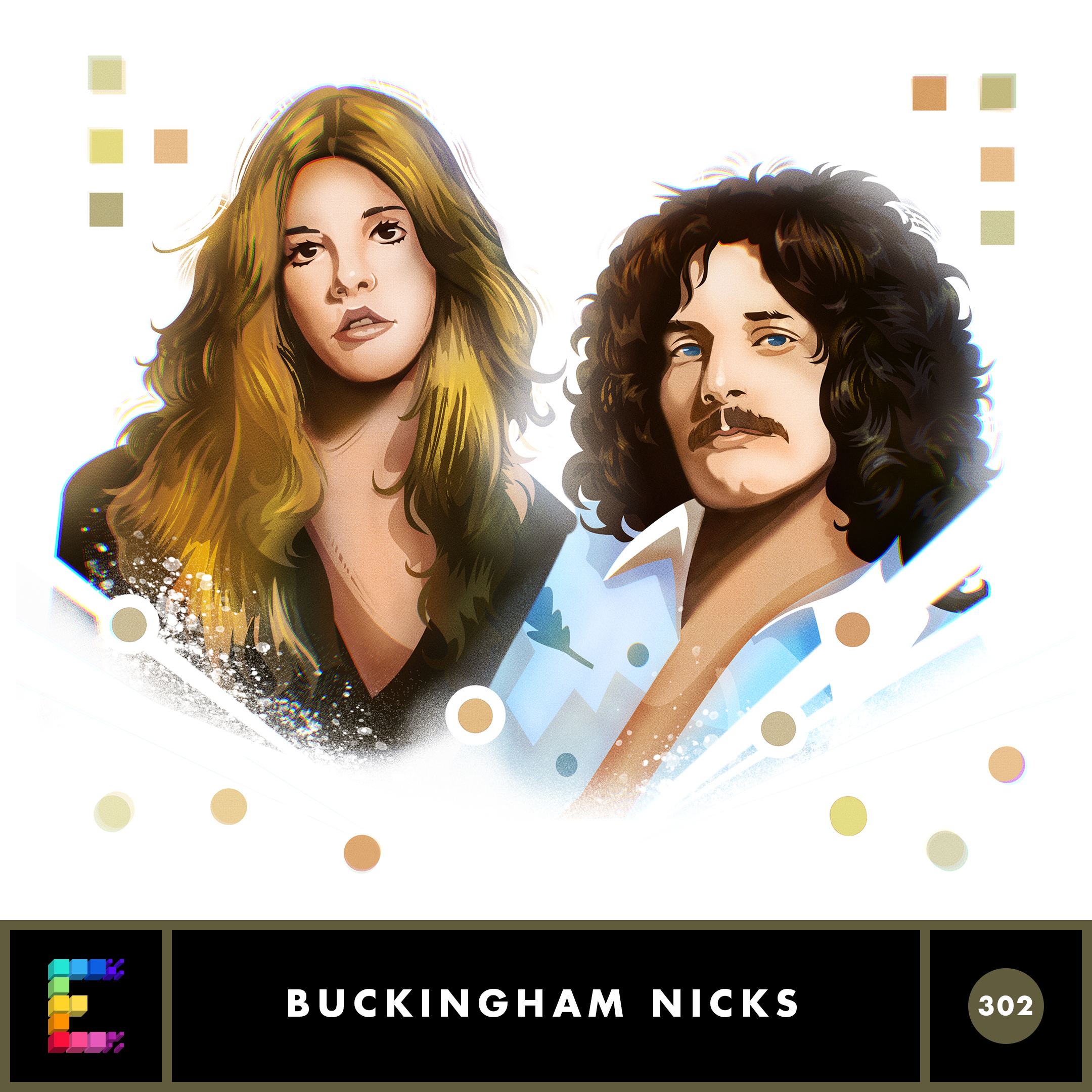of Montreal - Wraith Pinned to the Mist and Other Games
Kevin Barnes started of Montreal in 1996 in Athens, Georgia. The Sunlandic Twins came out in 2005; it was their seventh album. And I remember when that album came out, how it felt like they were suddenly everywhere. And the breakout song from that breakout album was “Wraith Pinned to the Mist and Other Games.” And so, for this episode, I spoke to Kevin Barnes about how that song came together, and what it meant to them then, and what it means to them now.
For more info, visit songexploder.net/of-montreal.
Press play and read along
Transcript
Speaker 1 You're listening to Song Exploder, where musicians take apart their songs and piece by piece tell the story of how they were made. I'm Rishi Kesh Hirway.
Speaker 2 Support for this podcast and the following message comes from Sutter Health.
Speaker 2 From life-changing transplants to high blood pressure care, Sutter's team of doctors, surgeons, and nurses never miss a beat.
Speaker 2 And with cardiac specialty centers located in the community, patients can find personalized heart care that's close to home. Learn more at Sutterhealth.org.
Speaker 1 This episode is brought to you by Progressive Insurance. Do you ever think about switching insurance companies to see if you can save some cash?
Speaker 1
Progressive makes it easy to see if you could save when you bundle your home and auto policies. Try it at progressive.com.
Progressive Casualty Insurance Company and affiliates.
Speaker 1 Potential savings will vary. Not available in all states.
Speaker 1
Kevin Barnes started of Montreal in 1996 in Athens, Georgia. The Sunlandic Twins came out in 2005.
It was their seventh album.
Speaker 1 And I remember when that album came out, how it felt like they were suddenly everywhere. And the breakout song from that breakout album was Wraith Pin to the Mist and Other Games.
Speaker 1 And so for this episode, I spoke to Kevin Barnes about how that song came together and what it meant to them then and what it means to them now.
Speaker 3 Let's have bizarre celebrations.
Speaker 3 Let's forget forget who forget why forget where
Speaker 3 We'll have bizarre celebrations
Speaker 3 I play the saturn Cyprus you the bride being stripped bear
Speaker 3 Let's pretend we don't exist
Speaker 3 Let's pretend we're in Antarctica
Speaker 1 Could I get you to just do an introduction for the beginning of the episode?
Speaker 3 Yeah, my name is Kevin Barnes and I am of Montreal.
Speaker 1 So in my my understanding, you made a few records in more of a band incarnation, but by the time this album came around, you were making stuff more sort of in a solo mode. Is that right?
Speaker 3 Yeah, I had like a pretty solid lineup for a few years, and we had made a couple records.
Speaker 3 The records didn't sell well, and people weren't really vibing with them, and people in the band were sort of losing interest in being in a Montreal and wanting to do their own things.
Speaker 3 And so, the band sort of dissolved, and then I made Satanic in the Attic by myself for the most part.
Speaker 3
And that record did really well by our standards at that point. It was like a big jump up.
Yeah.
Speaker 3 But then I sort of realized like I really liked working by myself because when I first started making music, I did it by myself because I didn't have any other people around me.
Speaker 3 I was living in South Florida with my mom and dad. And there weren't a lot of people that were into the kind of thing that I was into.
Speaker 3 Actually, there was nobody that was into the kind of stuff that I was into.
Speaker 3 So just pretty much did it all myself then, but always kind of assumed that it would be better to have a group of people because then everyone's kind of more invested and it's less, less on my plate.
Speaker 1 And less lonely.
Speaker 3 A little bit less lonely. Yeah, for sure.
Speaker 3 But then there's also problems that come with that because then like there's egos and there's like emotions and like people are like, oh, you know, you played that bass part, but I'm the bassist.
Speaker 3 Why would you play it? So I kind of like, yeah, reached a point. where I was like, I can just do this myself because I want to.
Speaker 3 And I have all these ideas and have a very specific baseline in mind or a very specific synth part in line and and it was also just really fun especially if you're by yourself and you can really zoom in on all the little details and the minutiae and and really get lost in that world and it's so fulfilling I always think of it like painting that like so many people create these incredible works these paintings and it's kind of just assumed that they did it by themselves and you know it's not weird at all it's actually it would be way weirder to do a collaborative painting so i kind of think about that in a similar way of like recording a song.
Speaker 1 Yeah, I was wondering if there was any feeling of, oh, the albums I did as a band didn't do as well. The album I did solo did better.
Speaker 1 So that means I should keep working in this way.
Speaker 3 Yeah, I wonder.
Speaker 3 I think on some level, maybe it did feel more justified to be more of an egomaniac and to be like, yeah, it's okay that I'm doing all this by myself because look, guys, it's like working.
Speaker 1
I think of you as a pretty prolific artist. Satanic Panic and the Attic came out in 2004, and then Sunlandic Twins came out in 2005.
Do you consider yourself prolific?
Speaker 3
In a weird way, my self-worth is contingent on that. Like, you know, I kind of feel like, oh, it's embarrassing.
I haven't done anything in like six months.
Speaker 3 You know, like, I need to be constantly re-establishing that I'm an artist in my mind, or else I just feel kind of lost and restless.
Speaker 3 like a loser.
Speaker 1 I mean, I think I feel the same way, but there's a certain amount of time, some unknown amount of time that I have to wait before the creativity reservoir gets filled back up again.
Speaker 1 And it usually takes a pretty long time. Do you have a similar experience like that where you have to kind of give it a second or can you just dive right back in?
Speaker 3 Okay, so if I'm working on it on a new album, a lot of times I am trying to do it in like the least self-conscious way possible, or I'm just creating things and not thinking like, oh, I'm making an album or like, what are people going to think about this?
Speaker 3 You know, it's just like, just really allow myself to be as free as possible and not imagine an audience, not imagine critics, not imagine any of that side of it.
Speaker 3 And really just kind of let the whole thing flow.
Speaker 1 What was your life like in that time when you were starting to make this song?
Speaker 3 My life was insane in between Satanic Panic and Sunlight Twins because I was newly married and my wife was the bass player in the band.
Speaker 3 And on tour, we discovered she was pregnant and like we weren't really making any money we didn't have health insurance we didn't have any of the things that you think you would need you know to like bring a child into onto the earth so that's kind of like the backdrop for me finishing up some lenik twins uh nina's pregnant we were living in a house in athens with my brother and even though it was pretty scary The thought of having a child was still like very abstract, just kind of like mysterious, but not overwhelming or anything.
Speaker 3 So I was like still able to kind of focus on creating the songs and working in my little bedroom studio.
Speaker 1 Do you think you could pinpoint the first moment of inspiration for Wraithpin to the Mist?
Speaker 3 That one, I have like a really strong memory.
Speaker 3 So I wrote it on an acoustic guitar.
Speaker 3 celebrations.
Speaker 3 Our biggest saturn said, pursue the barbed stream.
Speaker 3 Let's pretend we don't exist.
Speaker 3 Let's pretend we're in a hurt together.
Speaker 3 It was a pretty small house that my brother and Nina and I lived in. And if you weren't in your bedroom, you were basically in a public space.
Speaker 3 You know, the kitchen and the living room, it were all just sort of one big room. And my brother David would be out there on the table drawing or whatever.
Speaker 3
And Nina would be doing whatever she was doing. And I remember coming out of my little bedroom studio space and being like, hey, I wrote this song.
And I played it for them.
Speaker 3 Like, what do you guys think? And they're like, oh, that's cool.
Speaker 3 It's kind of funny because it is like not really the kind of thing that you would normally think would happen on an acoustic guitar because, you know, just playing like single notes.
Speaker 3 And that way, like, basically, it's like obviously a bass line. So it definitely kind of seems like a shower song that you'd just be like,
Speaker 3 And you're like, oh, that's kind of cool.
Speaker 3 And then I had to like imagine like how I wanted to kind of like bring it to life.
Speaker 3 I just started getting into drum programming and recording on a computer. So I started using this program called Reason.
Speaker 3 At that time, it was like pretty like stiff and funny sounding, but I thought it was really fun. I think I was using Reason in a similar way that people were using drum machines in the 80s and stuff.
Speaker 3 So I started with just the dump, dump, dump, and then added some percussion.
Speaker 3 Wraith Pin to the Mist was kind of like aspirational in a way. Like I want to make fun, funky, upbeat, buoyant dance music.
Speaker 3 I always loved Prince when I was like 12, 13, 14, like really early when I was discovering music.
Speaker 3 Then I kind of moved away from that in my early 20s when I was, you know, more obsessed with 60s music and psychedelic stuff.
Speaker 3 But it was like around Sunlight Twins where I started coming back to those influences and realizing like Prince is really cool and Durant Duran's really cool.
Speaker 3 And I kind of want to make stuff that's a little bit more like that.
Speaker 1 Where would you get your drum sounds from?
Speaker 3 Those are all just like stock reason drum sounds, which I always thought was interesting because like all those like early drum machines that people used to use back in the day, like so many songs were made using that same drum machine.
Speaker 3 But you don't really feel like, oh, all these songs sound the same. Somehow they still have like their own personality.
Speaker 3 I think that I enjoyed hearing it like really more spacious, hearing just like the kick, like all the little elements, like there aren't that many of them.
Speaker 3 And each one kind of has its strong personality.
Speaker 3 like the shaker or like the hi-hat or the tambourine hit.
Speaker 1 So you have these electronic drums that you made in Reason, but then the rest of the elements in the song aren't electronic, right?
Speaker 3
Yeah, exactly. So, I had to use two different programs at the same time.
I was using all of the drum software from Reason,
Speaker 3 and then in Q-bass, I would record the audio, guitar, and vocals, and all that stuff because you couldn't do that in Reason back then.
Speaker 3 Yeah, and then the bass line, of course, the doo-doo-doo-doo-doo-doo-doo-doo
Speaker 3 when I was recording it, I kind of like did like a disco baseline for the verse.
Speaker 3 I mean, it's funny because like when I look at those cuebase projects now, they're so minimal.
Speaker 3 And I was just using this PC that Brian Poole, who played in the band at that time, helped me build.
Speaker 3 It's nowhere near like as good as the stuff I have now that I could have like actually like a hundred tracks But at that time I was doing a lot more with less and it's kind of like a lesson that I'm trying to like remember
Speaker 3 Let's have bizarre celebrations
Speaker 3 Let's forget who forget what forget where
Speaker 3 we'll have bizarre celebrations
Speaker 3 The groove was so laid back that it allowed me to kind of experiment a bit more with my voice and try to do something that I hadn't really done that much sort of like a little bit breathier a little bit more casual.
Speaker 3 I think I was really probably influenced a lot by Ray Davies and the Kings. There's too much on my mind.
Speaker 3 There's too much on my mind.
Speaker 3 You know, mid to late 60s, there's some songs where he has this very sexy, kind of like mellow style of singing. And I think that I was kind of trying to emulate that a bit.
Speaker 3 Let's pretend we don't exist.
Speaker 3 Let's pretend we're in
Speaker 1 Our conversation continues after this.
Speaker 1
This episode is brought to you by the new film Splitsville. It's a comedy about relationships and the messiness that comes with them.
And it stars Dakota Johnson and Adria Arhona.
Speaker 1 It premiered at Cannes, where it got got rave reviews and it's distributed by Neon and for me that's huge because I trust Neon the way that I trust my favorite record labels.
Speaker 1 I will definitely check out anything that they put their name on. So I'm looking forward to seeing this.
Speaker 1 Splitsville is already playing now in select theaters and it'll be playing everywhere on September 5th.
Speaker 1 Song Exploder is sponsored by Quince, which is a great place to find clothes for the fall.
Speaker 1 Here in LA, it's pretty hot during the day, but then it always drops to the the low 60s at night, even in August. So when I want to dress for the fall, even in the summer, I just wait for the evening.
Speaker 1 And then I put on this sweater that I got from Quince that has a sort of high collar with four buttons going up the neck. It's made from Mongolian cashmere, and I really love it.
Speaker 1
And I know I'm going to be wearing it through the fall here in LA. and when I'm traveling other places.
Quince partners directly with Ethical Factories and they only sell direct to customers.
Speaker 1 So you get top-tier fabrics and craftsmanship at half the price of similar brands. So keep it classic and cool this fall with long-lasting staples from Quince.
Speaker 1 Go to quince.com/slash song exploder for free shipping on your order and 365-day returns. That's q-u-in-ce-e.com slash song exploder for free shipping and 365-day returns.
Speaker 1 Again, it's quince.com/slash song exploder.
Speaker 1 I'm pretty active and I eat pretty well, so I've been been operating under the idea that I'm basically healthy.
Speaker 1 But thanks to Function Health, who sponsor Song Exploder, I found out that actually a handful of biomarkers around my heart health are below what's considered normal.
Speaker 1 And with my family history and genetics, I really have to watch out for that.
Speaker 1 And I wouldn't have known about this if it weren't for Function, which is a health platform that gives you access and insights into all kinds of information about what's really happening inside your own body.
Speaker 1 They have over 100 tests that are included in your Function Health membership, so you can take proactive steps to learn more about specific areas of your own health.
Speaker 1 There's a saying, that which can be measured can be improved. And now that I can measure these biomarkers, I can improve them.
Speaker 1 So learn more and join by using the Song Exploder link at functionhealth.com/slash song exploder. The first thousand people to sign up will get a hundred dollar credit toward their membership.
Speaker 1 That's functionhealth.com/slash song exploder. Or use the code songexploder100 when you sign up to own your health.
Speaker 1 To me, I always heard the song as a love song. Do you think that's accurate?
Speaker 3
Yeah, I think that it's a love song. It's sort of like a call to escapism.
Like things can be nasty or stupid, but we can invent our own reality.
Speaker 1 The line, let's pretend we don't exist, to me feels like it has a lot of darkness baked into it, even though you sing it in such a light and airy way.
Speaker 3 Yeah, and even like, let's pretend we're in Antarctica. It's like, why would you want to pretend you're in this like desolate, frozen tundra? Yeah, you know, it's like,
Speaker 3 but I was like a big Edward Gorey fan, and so I always like, you know, these sort of like dark children's stories.
Speaker 3 So I think having like a darker edge to a thing that feels like it shouldn't have the darker edge has kind of appealed to me. We'll have bizarre celebrations.
Speaker 3 We'll play Tristan and Isolda, but make sure I see white sails, sails. Let's pretend we don't exist.
Speaker 1 In a song, you know, about not getting sucked down by the negative, the fact that you're referencing Tristan and Izzel, you know, the most depressing classic love story where both of them die at the end.
Speaker 1 But in your version, they don't.
Speaker 3 Yeah, they don't because, you know, we're just play acting. And anyways, you know, they're not real.
Speaker 3 That's kind of the funny thing, you know, with art.
Speaker 3 They're like, okay, it was written that way but it could have been written a different way everything could be written in a different way and everything is like on the table you know oedipus you know what a like tragic figure like okay well then you could write a flip of that where like he has sex with his mom kills his father and uh they have a nice life together
Speaker 3 Yeah, yep, that's an alternate version.
Speaker 3
So we can pretend that we don't exist. We can pretend we're somewhere that we're not.
And we can do it together. Kind of think of it as an homage to magical thinking.
Speaker 1 What does magical thinking mean to you?
Speaker 3 I guess magical thinking for me is, you know, this part of your brain that knows this isn't actually something that you find in the natural world. You find it in your psyche.
Speaker 3
You find it in your creativity. You find it.
in your imagination. And so
Speaker 3 on some levels, it can be extremely helpful because if you're feeling a lot of trauma or whatever, and you don't want to just like drown in your drama, then you kind of have to recreate a new structure that isn't as destructive to your existence.
Speaker 3 But magical thinking is like basically turning on the television that's inside your head and allowing that to do the work. And I feel like that's more engaging, more helpful, and probably
Speaker 3 will help you be more productive if you're trying to do things in the art world. I play the satyr in Cyprus, you the bright beans drip bear bear.
Speaker 3 I think I was always sort of drawn to Roman and Greek mythology.
Speaker 3 They were like the masters of magical thinking, and in a way that is definitely more interesting to me than like Catholicism or any of the other forms of like contemporary magical thinking.
Speaker 3 These different characters, these different stories, and how they're passed on for like centuries and they still are still relevant.
Speaker 1 Could you tell me about the title of the song? Where did the title Wraith Pin to the Mist and other games come from?
Speaker 3 At that time, especially, I was like, you should be as creative with the song titles as you are with the lyrics and with every other component of it.
Speaker 3
And, you know, I could call it like bizarre celebrations, but that's boring. Yeah.
You should call it something like off the wall.
Speaker 3 The concept of like doing something that's impossible, like pinning a wraith to a thing like the mist, like not physically possible, but the concept of it is pretty interesting.
Speaker 3 And if you could do it in your mind, the thought of that is, yeah, it's kind of just like a little brain twister.
Speaker 1 Do you feel like wanting to make dance music and writing a song where the lyrics felt kind of like light and fun, that those things went together?
Speaker 3 Yeah, I think so. I think that Sunlight Twins is almost like a child-like record in that the adult world hadn't really crept in yet.
Speaker 1 Is there any chance that, you know, if you're already aware that Nina was pregnant at the time, like, were you thinking about that this is the chance for you to kind of ignore the impending adult reality of having a child?
Speaker 3
Having a child, dealing with like mental illness, financial stress and marital stress and all these things that up to that point I had been sort of free from. Yeah.
Yeah.
Speaker 3 Yeah, I think so. I think I was feeling very confident, newly married, have a very good support system at that point, living with my brother and my wife.
Speaker 3 So, even though there's a very big change on the horizon, I think I was like in a pretty good state of mind, you know, feeling very positive.
Speaker 3 Like, the middle section goes into this kind of like preschool Crayola moment with a maybe I'll never die.
Speaker 3 These like happy little elves.
Speaker 3 Maybe I'll never die. I'll just keep growing younger with you.
Speaker 3 And you'll grow younger too. Now it seems too lovely to be true.
Speaker 3 But I know the best things always do.
Speaker 3
And then it becomes like the true celebration when all the extra instruments come in. That is like the bizarre celebration.
It's like, hey, everyone pick up an instrument.
Speaker 3 You know, it's like three bass parts.
Speaker 3 With Something Like Twins, I started getting into like Afrobeat and Felicudi, and you can definitely hear it with a lot of the multi-tracked bass lines.
Speaker 3 I've always been very interested in bass as a melodic instrument and not just as a part of a rhythm track and as a guitar player.
Speaker 3 Like I'm definitely not a bassist, I'm more a guitar player that plays bass. So I think that yeah, I got really into creating multi-layered bass parts
Speaker 3 And what I think of kind of as like pointalism guitar stuff.
Speaker 3 Where it's like everything is just kind of like filling in this little space.
Speaker 3 Staccato little melodic notes that are like creating a full picture.
Speaker 3 So I started like thinking about music visually in that way.
Speaker 3 And I think that like, yeah, recording on the computer was sort of helpful too, because you do have the visual where you see like, you know, the transients and waveforms or whatever.
Speaker 3 And like, thinking about like, okay, well, there's a little space there. Maybe I should put a little bass note there.
Speaker 3
That's a guitar in reverse. Initially, would have just been like strumming it.
And then I mean, like, sounds kind of boring, just like strummed. Let's see what it sounds like if it's reversed.
Speaker 1 I mean, I feel like I'd rather make everything backwards.
Speaker 1 You know, like anytime I record a thing, I'm like, just flip it around because being able to even just add a little element of lack of recognizability to a sound just feels so much better.
Speaker 1 You know, just it's not a literal thing. It's this special, unusual thing.
Speaker 3 I think that, yeah, probably like being such a like a psychedelic pop fan, you know, has always been inspiring for me. And how can we make this guitar not sound like a guitar?
Speaker 3 How can we make my voice not sound like a voice? How can we, you know, make the drums sound like not drums or whatever. That kind of mentality has always been a part of the process for me.
Speaker 3 It's like, how can I make this thing sound like something it's not? That feels exciting. That feels like I'm doing something.
Speaker 1 You have a lot of tracks of vocals on this, or at least in terms of the way that I got the tracks sent to me.
Speaker 3 I think that I've always gravitated towards layering really dense harmonies.
Speaker 3 So usually I'll have like a harmony idea that will come and then be like, well, I could do a third one.
Speaker 3 Let's pretend we don't exist.
Speaker 3 Let's pretend we're in Antarctica.
Speaker 3 Let's pretend we don't exist.
Speaker 3 Let's pretend we're in Antarctica.
Speaker 3
I wanted it to feel like what the lyrics were saying. It's like, okay, we're having our bizarre celebration.
It's really happening.
Speaker 3 And I think that's probably why I had this sort of extended outro is like, get lost in the vibe that's happening with just the music and the groove of the thing.
Speaker 3 Let's pretend we don't exist.
Speaker 3 Let's pretend we're in Antarctica.
Speaker 3 Let's pretend we don't exist.
Speaker 3 Let's pretend we're in anthropocome.
Speaker 1 How do you feel about this song these days? Like, does it enter your life or your thoughts much? What's your relationship like with this song now?
Speaker 3
I kind of feel weird about the past. And I don't really think about, wow, what a cool time.
Because I have a lot of downer energy.
Speaker 3 I think I don't really zoom in that often on like what was positive about that time.
Speaker 3 But yeah, I mean, to answer your question, I don't really feel that connected. I only really feel connected to the new thing I'm working on.
Speaker 3 And the thing that I've done in the past doesn't really feel like me. Like, I'll accept that it is me, but like, it's like a different person made it.
Speaker 3 The song has gone so many funny places that I never would have predicted in a million years, which is funny because it's like, in a lot of ways, one of the more simplistic songs.
Speaker 3 That's the one thing when I look back on Sonic Twins, I'm like, wow, I used so much restraint back then. Like, I kind of allowed things to have more air.
Speaker 3 And I think the kind of airiness, buoyant quality of the song, I think is what people vibe with. For some reason, it's like resonated for people on levels that very few of my songs have.
Speaker 3
Definitely that wasn't my ambition when I was making it. It was very much just like all the other songs.
Like, I'm just doing this thing right now and not really thinking that much about it.
Speaker 3 Yeah, I felt pretty neutral about it going into it and felt pretty neutral about it when it was done.
Speaker 3 It's like, it's fun to make it, but now let's make another thing.
Speaker 1 And now, here's Wraith Pin to the Mist and other games by Of Montreal in its entirety.
Speaker 1 Let's have bizarre celebrations
Speaker 1 Let's forget who, forget, why, forget where
Speaker 1 We'll have bizarre celebrations
Speaker 1 I play the Saturn Cypress, you the bride bean strip bear
Speaker 1 Let's pretend we don't exist
Speaker 1 Let's pretend we're in Antarctica
Speaker 1 Let's pretend we don't exist
Speaker 1 Let's pretend we're in Antarctica
Speaker 1 Let's have bizarre celebrations
Speaker 1 Let's forget when, forget what, forget how
Speaker 1 We'll have bizarre celebrations
Speaker 1 We'll play just in his older but make sure I see white sail and sail Let's pretend we don't exist
Speaker 1 Let's pretend we're in Antarctica
Speaker 1 Let's pretend we don't exist.
Speaker 1 Let's pretend we're in Antarctica.
Speaker 1 Maybe I'll never die. I'll just keep growing younger with you.
Speaker 1 And you'll grow younger too. Now it seems too lovely to be true.
Speaker 1 But I know the best things always do.
Speaker 1 Let's pretend we don't exist.
Speaker 1 Let's pretend we're in Antarctica.
Speaker 1 Let's pretend we don't exist.
Speaker 1 Let's pretend we're in Antarctica.
Speaker 1 Let's pretend we don't exist.
Speaker 1 Let's pretend we're in Antarctica.
Speaker 1 Let's pretend we don't exist.
Speaker 1 Let's pretend we're in and out to come.
Speaker 1 Let's pretend we don't exist.
Speaker 1 Let's pretend we're in and out to come.
Speaker 1 Let's pretend we don't exist.
Speaker 1 Let's pretend we're in and out to come.
Speaker 1 Let's pretend we don't exist.
Speaker 1 Let's pretend we're in and thought to come.
Speaker 1 Let's pretend we don't exist.
Speaker 1 Let's pretend we're in our heart to come.
Speaker 1 To learn more, visit songexploder.net. You'll find links to buy or stream this song, and you can watch the music video.
Speaker 1 This episode was produced by me with Craig Ely, Kathleen Smith, and Mary Dolan, and production assistant Tiger Biscuit.
Speaker 1 The episode artwork is by Carlos Lerma, and I made the show's theme music and logo.
Speaker 1 Song Exploder is a proud member of Radiotopia from PRX, a network of independent, listener-supported, artist-owned podcasts. You can learn more about all our shows at radiotopia.fm.
Speaker 1 If you'd like to hear more from me, you can sign up for my newsletter, which you can find on the Song Exploder website. You can also get a t-shirt or sweatshirt at songexploder.net/slash shirt.
Speaker 1 I'm Rishikesh Yourway. Thanks for listening.
Speaker 3 Radiotopia
Speaker 3 from PRX.
Speaker 1 This episode of Song Exploder is brought to you by Booking.com. Booking.yeah.
Speaker 1 From vacation rentals to hotels across the U.S., Booking.com has the ideal stay for anyone, even for those who might seem impossible to please.
Speaker 1 Whether you're booking for yourself, your partner, your dad, your group of friends, whoever it is, you can find exactly what you're booking for at booking.com. Booking.com, booking.yeah.
Speaker 1 Book today on the site or in the app.

